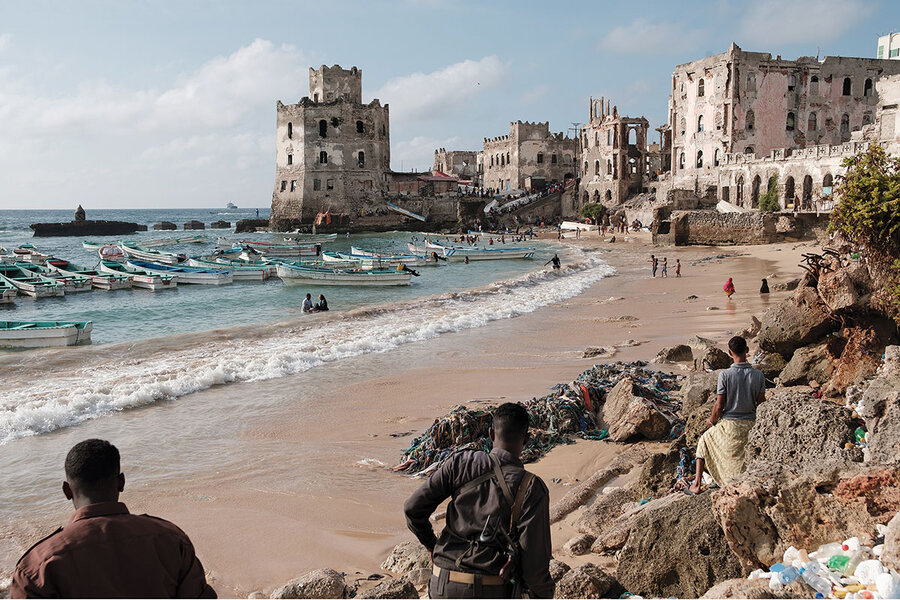In Pictures: At Mogadishu’s Lido Beach, a growing community hub
Loading...
| Mogadishu, Somalia
For decades, the word “Somalia” has been associated with mass hunger, clan conflict, and the Islamist militant group Al Shabab. For Americans specifically, Somalia is often synonymous with the 15-hour street fight in October 1993 that claimed the lives of 18 U.S. troops, memorialized in the film “Black Hawk Down.”
But today – even as famine looms again over Somalia, amid the worst drought in 40 years – the majority of this nation’s roughly 17 million citizens get on with daily life the best they can. For residents of Mogadishu, that can mean taking advantage of the beaches and warm sea that define the southeastern edge of the capital.
A small fleet of fishing skiffs is moored in the quaint old port in the shadow of the ruins of Italian colonial-era buildings dating back nearly a century. Men bring in hauls of tuna and sometimes shark, while children play in the surf. But the real place of unbridled happiness lies just up the coastline, at Lido Beach. It is here that families feel the rush of the waves, laughing and shouting as they enjoy the freedom offered by the sea. Women enter fully clothed, and life jackets can be rented for those who can’t swim.
Why We Wrote This
A story focused onLife in Somalia can be hard, and that view is often reinforced by the media. But at Mogadishu’s Lido Beach, our reporting team finds an abundance of joy, camaraderie, and local pride.
Keeping the beach clean has become a priority, in the process turning its increasingly pristine expanse into an unexpected community hub.
At dawn on Friday mornings citizen volunteers take to the sands, leaving daily dangers behind as they comb the coastline for trash.
“We need our city to be cleaner, for that we do it. It is too important,” says Sirad Mohamed Nur, a volunteer who also runs a rehabilitation center for children that focuses on drug abuse.
The volunteers have been out every week for more than a year, their numbers having grown from just six to more than 300.
“The environment is important for everyone,” says Abdisatar Arbow Ibrahim, who started the beach cleanup project. “In Somalia, people are starting to understand the value of volunteer work and the environment.”











